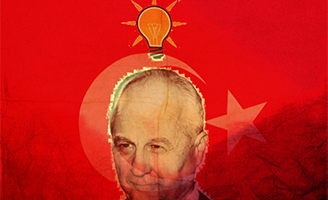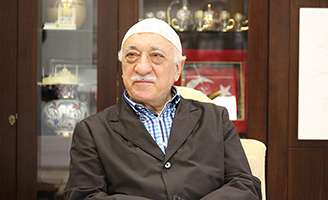What the Columnists Say
Etyen Mahçupyan in Akşam writes that the common sense of Erdogan demonstrates that Turkey is moving toward democracy thanks to the AKP, in spite of its deficient democratic tradition. Güray Öz writes in Cumhuriyet that weakening and neutralizing the AKP power is not going to be an easy task, and that those who have conquered the state are not going to relinquish power just because they lost their majority in the election. Aydın Engin in Cumhuriyet argues that the AKP simply cannot abandon power, first because the party has committed war crimes in Syria and would face the consequences if it were to surrender government power, and second because the moneyed interests that have prospered during its reign and who depend on its power would not allow it to step down. İbrahim Karagül in Yeni Şafak writes that the same international will that ended democracy in Egypt is now scheming to oust AKP from government, but that AKP is Turkey's backbone and that the forty one percent are never going to surrender.

What the Columnists Say
Ahmet İnsel in Cumhuriyet writes that the purpose of the attacks that were carried out against the premises of HDP in Adana and Mersin was to provoke HDP supporters and incite them take to the streets. Cengiz Çandar in Radikal writes that Turkey has lost its immunity to Salafism by acting as a sponsor of the Sunni radicals in Syria, in concert with Saudi Arabia. On the occasion of the death of Kenan Evren, the general who took power in the 1980 coup, Fatih Yaşlı in Yurt notes that Evren fathered today’s “New Turkey” by putting the current neoliberal-Islamic regime in place. Mümtazer Türköne in Zaman similarly observes that Evren’s regime, with its oppressive institutions, is still in place. He also notes that Evren was responsible not only for the coup but also for the wave of assassinations and massacres from 1978 onwards that preceded it and was used to legitimize it. İhsan Dağı on the Diken news site writes that if HDP crosses the threshold to parliament in the upcoming general election, it will restore the faith in competitive democracy, by demonstrating that change by normal ways is still possible in Turkey.

The Rising Bar: Prospects for the Kurdish Issue after the Turkish General Election
By Gareth Jenkins (vol. 8, no. 10 of the Turkey Analyst)
In the run-up to the Turkish general election of June 7, most attention has been focused on whether or not the pro-Kurdish Peoples’ Democracy Party (HDP) will cross the 10 per cent threshold necessary for representation in parliament and prevent the ruling Justice and Development Party (AKP) from securing a large enough majority to change the constitution and concentrate all political power in the hands of President Recep Tayyip Erdoğan. But the election is also likely to have a profound effect on the future of the Kurdish issue itself.

Coups and Class: Why Turkish Democracy Is Derailed
By Halil Karaveli (vol. 8, no. 10 of the Turkey Analyst)
The Turkish military’s capacity for intervention in politics has been inversely proportional to the ability of the bourgeoisie to establish hegemonic rule. The dynamic that set the stage for all the coups was the fact that the most developed fraction of the Turkish bourgeoisie always needed a helping hand in order to prevail against other fractions and classes. History could have ended with the AKP, as the party secured bourgeois hegemony. Today, however, industrial interests have reason to be much less satisfied with the course that the regime is pursuing. Conjuring the specter of class warfare, President Recep Tayyip Erdoğan claims that “capital is changing hands.” That is a process that is bound to unleash new political convulsions.

The Gülenists Have Lost the Battle over the State
By M. K. Kaya (vol. 8, no. 9 of the Turkey Analyst)
The Gülenists have lost the battle over the control of the state. Most damningly for them, they have been exposed as ruthless power grabbers. It has been of critical importance for the AKP government in its fight against the Gülenists that other groups within the judiciary have rallied to it. The lessons that the present Turkish government has had to learn the hard way are not going to be lost on future governments. One can assume that they are going to be very careful not to offer the Gülenists any leeway.








